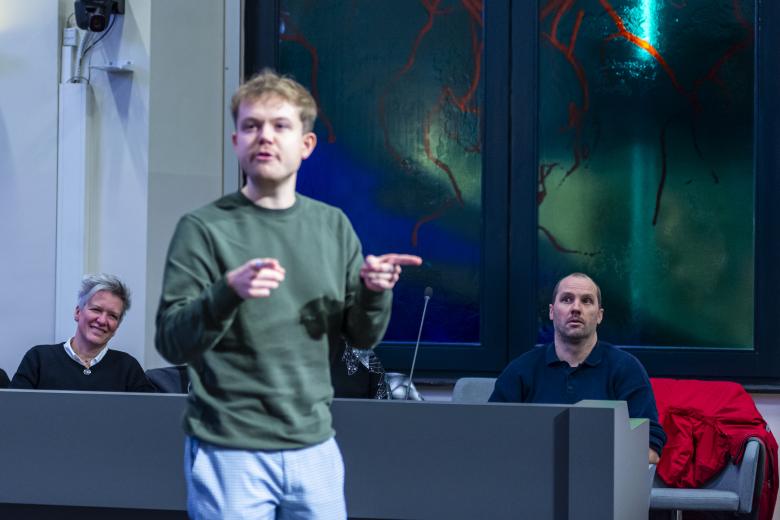Myth: bioplastics will solve the trashproblem
It doesn’t take you very long to find the consequences of the plastic soup in the ocean. The internet is filled with images of sea turtles with sixpack-rings around their shell, seals covered in shredded plastic bags and beaches littered with plastic bottles. Bioplastic, which accounts for only 2 percent of the total amount of plastic, seems to be the logical solution. If all the materials come from nature, it can’t harm nature. But that’s too simple of a thought according to Yvonne van der Meer, Associate Professor Sustainability of Biobased Materials.
“Bioplastic is made from natural materials, but those materials are often processed. The added substances may be harmful. The goal is to produce a more durable type of plastic to counter climate change, and not necessarily to make it degradable. Some plastics are, but definitely not all – you can’t solve all problems at once.
You want a long-lasting product, but in at the same time you want it to be easy degradable. That makes it very hard because those two objectives clash with each other. It is possible with a specific ‘trigger’, which dissolves the product when you want it to and not sooner.”
Relevant links
Also read
-
More than another ‘to-do’: how the UTQ helped me rethink my teaching
At Maastricht University, the University Teaching Qualification (UTQ) is a professional development programme designed to strengthen teaching and learning. It supports teachers in developing core teaching competencies through a combination of workshops, peer learning, on-the-job experience, and...

-
Brightlands Circular Space focuses on integrated approach to entire plastic value chain
Construction has officially started today in Limburg of Brightlands Circular Space, a demonstration facility that accelerates the transition to circular plastics.

-
MaaSec – The Netherlands' Only Active ACM Student Chapter captures the flag
In January, a group of Computer Science students at Maastricht University launched MaaSec, currently the only active ACM student chapter in the Netherlands. And in just a few months, they've already made a name for themselves; especially in the world of Capture the Flag (CTF) competitions.
